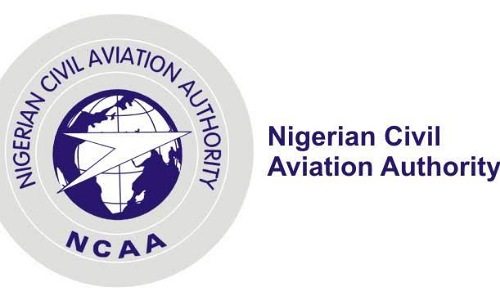Aviation
Nigeria recommences move to concession airports

Josephine ADAMA
ABUJA-Talks have just recommenced among the relevant Nigerian authorities on the possible concessioning of the airports, Benjamin Dikki, director general, Bureau of Public Enterprises (BPE), said yesterday.
Speaking during the BPE’s privatisation day held yesterday at the sidelines of the 9th Abuja international trade fair, Dikki said that even though the airports had been improved, the concessioning was now necessary for them to be more efficient and meet global standards.
No timelines have been given yet as it is still early days, but Dikki hinted that his office “has already held discussions with the minster of aviation, who is “agreeable and very keen that we hand over the management of our airports to the private sector.”
He noted that there is already an agreement in principle and that the concept paper was being developed to indicate the direction, timelines and work programmes which would be discussed with the minister before seeking necessary approval of the National Council on Privatisation and President Goodluck Jonathan.
While he could not actually say how soon the process could commence, Dikki, however, explained that the first step would be to do a due diligence on the airports which would be captured in a detailed information document that can be handed to the potential investors to make informed decision.
He hinted that it would likely take between two and six months to complete diagnostic study of all the airports before the process can then commence.
Dikki also announced that the guided liquidation of the NITEL/MTEL was still ongoing and that the prospective bidders were currently conducting data room due diligence on the assets of the companies.
He also said that the privatisation of the refineries was still at the consultation stage, noting that his office was still “consulting with the major stakeholders like the labour unions, among others.
“We want to agree with them on the acceptable framework for the privatisation of the refineries,” he stated, expressing confidence that the passage of the Petroleum Industry Bill (PIB) would encourage private sector investors to commit their money into those refineries.
“We are constrained by the absence of the law, and also by the fact that we are holding consultations with major stakeholders to be able to agree on a road map going forward,” Dikki explained.
According to him, the eight bills, which are also critical element in the Bureau’s 2014 work plan including railway bill, inland waterways bill, federal roads authority bill, national transport commission bill, ports and harbour reform bill, federal competition and consumer protection bill and postal reform bill have been reviewed and finalised by the Office of the Attorney General of the Federation and presently before the FEC.
He envisaged that the passage of these bills would lead to the abrogation of monopoly sector laws, liberalisation of the sector and establishment of regulatory agencies would encourage private sector investment inflows, job creation and higher economic growth.
Dikki assured that the Bureau would be working with relevant stakeholders in meeting the conditions precedent for the declaration of Transitional Electricity Market and to continue to handle post-privatisation issues relating to the Discos, Gencos and TCN.
BUSINESSDAY-
Aviation
JUST IN: NCAA Suspends 3 Jet Operators

The Nigerian Civil Aviation Authority (NCAA) has taken action by suspending the permits of three private jet operators due to their involvement in commercial flights.
Chris Najomo, the Acting Director General of the NCAA, issued this suspension during a briefing to all airlines on Tuesday.
Additionally, Najomo ordered a re-evaluation of all PNCF permits within a 72-hour timeframe.
The head of the NCAA stated that Festus Keyamo, the Minister of Aviation and Aerospace Development, had instructed the discontinuation of private jets’ commercial use in 2023.
Despite this directive, the operators persisted in their commercial activities.
Najomo said “Subsequently, in March 2024, the NCAA had issued a stern warning to holders of the permit for non commercial flights, PNCF, against engaging in the carriage of passenger cargo or mail for hire and reward.
“The Authority had also deployed its officials to monitor activities of private jets at terminals across the airports in Nigeria.
“As a consequence of this heightened surveillance, no fewer than three private operators have been found to be involved in violation of the annexure provision of their PNCF and Part 9114 of the Nigeria Civil Aviation Regulations 2023.
“In line with our zero tolerance for violation of regulations, the Authority has suspended the PNCF of these operators.”
Aviation
Keyamo Charges NCAT To Produce 4,203 Controllers By 2037

Minister Festus Keyamo has urged the Nigerian College of Aviation Technology in Zaria, Kaduna State, to create new solutions that can speed up the training of skilled air traffic controllers.
This call comes as Africa anticipates a need for 4,203 new air traffic controllers by the year 2037.
The minister made this statement on Wednesday during the 34th IFATAC Africa and Middle East Regional meeting in Abuja.
Addressing the gathering, the minister noted that the goal of training 4,203 new air traffic controllers aligns with the projection from the International Civil Aviation Organization (ICAO).
He further affirmed the ministry’s commitment to offering full support to NCAT, ensuring it not only meets but surpasses its mandated duties and roles.
He said “ICAO projects that by the year 2037, Africa will require 4,203 new air traffic controllers. The onus rests on the Aviation College of Aviation Technology (NCAT) to develop innovative ideas solutions to accelerate the training of new and proficient air traffic controllers.
The minister, represented by acting director Michael Chiko from Air Safety and Administration, highlighted the rapid evolution of the air traffic control profession.
He stated “The profession of air traffic control has evolved rapidly, transitioning from simple flag signalling to sophisticated technologies. This evolution facilitates management of the surging number of aircraft traversing our
skies daily.
“As a vital, indispensable component of air safety, air traffic controllers are responsible for the safe, orderly and expeditious flow of air traffic. Therefore, I am not unaware of the critical role you play and invariably, the heavy burden you bear.
“This burden is compounded by increased air traffic, workforce shortages, technological shifts; necessitating rigorous training regimes.
“More so, with the emergence of unmanned aerial vehicles, reshaping dynamics and challenging the norm, it is thus paramount to prepare for the future and indeed Nigeria like other countries must prepare for the future.” he added
During the event, Mr. Lawrence Pwajok, representing Engr. Mohammed Odunowo, the managing director of the Nigerian Airspace Management Agency (NAMA), emphasized the relevance of the 34th IFATCA Africa and Middle East Regional meeting’s theme, titled ‘Shaping the Future: Trends and Insights On ATC Training for Tomorrow’.
Pwajok highlighted the significance of this theme, especially as air traffic control commemorates 100 years since its inception.
He suggested examining the historical perspective of air traffic control, tracing its origins from Croydon airport a century ago to its present form in modern airports like Dubai, Istanbul, JFK, Charles De Gaulle, among others.
This historical comparison aims to provide insights into the potential trajectory of the future air traffic control system over the next century.
He added “It is obvious that the future air traffic management system will be characterised by extensive application of automation, digitization and artificial intelligence.”
Aviation
Airlines Must Pay Compensation For Flight Disruptions – Keyamo

Festus Keyamo, the Minister of Aviation and Aerospace Development, underscored the obligation for airlines to provide compensations in cases of flight cancellations and delays.
Festus Keyamo conveyed this directive during a meeting with the heads of agencies affiliated with the ministry on Tuesday.
He said, “We are not deaf to the cries of Nigerians about delays and canceled flights. The law is there and we are looking at how to enforce those laws for compensation of Nigerians who bear the brunt of cancellation of flights and disrupting the activities.
“The process of grounding the airline or taking the airlines to court will create more problems.
“So if the reason for the delay and cancellation of flight is their fault they must pay compensation. And what I am suggesting is that if they don’t get cash back they must get some rebate when they buy next ticket.
“I have set up a committee to look into it such that they can generate a code that they can use when they want to purchase the next ticket.
“We are concerned about the passenger satisfaction and the safety of the air travelers,” he said. The minister directed the Director-General of the Nigerian Civil Aviation Authority to prepare a weekly catalogue of canceled flights.
He further instructed the Nigeria Safety Investigation Bureau to finalize investigations into all air accidents and mishaps within the upcoming 10 days.
He said: “For the recent incidents that happened recently, some minor, and others classified as serious incidents although there were no fatalities. The NSIB is investigating these incidents and I have directed them that within 10 days from today they must submit their report of the incidents and what actually transpired.” he added










